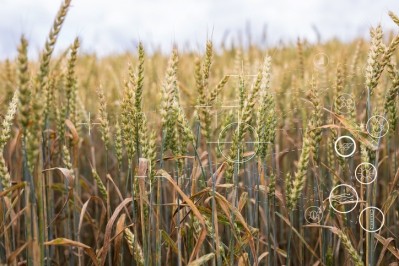Crops of the future: Carlsberg invents ultra-fast breeding tech to develop crops

The Carlsberg Research Lab is primarily a laboratory for brewing-oriented research: covering topics ranging from crop breeding to the dynamics of the end product.
But it says the new FIND-IT method, outlined in the latest issue of Science Advances, represents a wide-reaching and ‘ground-breaking step towards meeting the food requirements for our expanding global population, in the face of changing climatic conditions’.
The search for new varieties
With both rising temperatures and a projection the current yield increase rates of crops will not accommodate the food requirements of 9-10 billion people by 2050, there is an urgent demand to find ways to sustainably optimize the way we produce crops, notes the Carlsberg Research Laboratory.
In order to help address this, the lab, led by Prof. Birgitte Skadhauge, has invented the FIND-IT technology (Fast Identification of Nucleotide variants by droplet DigITal PCR).
"FIND-IT enables ultrafast improvement of many different types of plants, such as cereal crops, but also microbes. This includes barley, yeasts and bacterial strains that are fundamental for brewing, food production and many industrial processes. Moreover, FIND-IT accelerates the development process from laboratory to field evaluation and product development and has great potential for sustainable agriculture even outside the world of brewing," says the lab.
The new resource for crop and microbe improvement provides ultrafast identification and isolation of predetermined, targeted genetic variants in a screening cycle of less than 10 days.
Using large-scale sample pooling in combination with droplet digital PCR (ddPCR) greatly increases the size of low–mutation density and screenable variant libraries and the probability of identifying the variant of interest.
The importance of the tech is it could minimize time-consuming technical steps to accelerate the evolution of germplasm.
In contrast to transgenesis and CRISPR-Cas9 technologies, the insertion of complete genes, gene replacement, or the alteration of sections of genomes is not used with FIND-IT (in several jurisdictions, lines generated by CRISPR-Cas9 fall under GM guidelines and are therefore subject to the regulatory and financial barriers associated with releasing GM crops).
While the scientists say plant genome editing by CRISPR-Cas9 and transgenesis technologies ‘remains of central importance’ for the long-term future of crop adaptation, they note current CRISPR-Cas9 technologies have technical drawbacks and uncertainties that have so far precluded their widespread application in commercial plant breeding.
Potential in some 7,000 plants
The Carlsberg scientists tested the method by screening variant libraries totaling 500,000 barley (Hordeum vulgare) individuals and isolating more than 125 targeted barley gene knockout lines and miRNA or promoter variants enabling functional gene analysis. But the potential of the technology goes well beyond this.
“In the future, FIND-IT opens up new opportunities for crop improvement by providing a means to select and incorporate domestication traits into the approximately 7,000 undomesticated or semidomesticated crop plants that have superior drought tolerance, water tolerance, disease resistance, and mineral use efficiency, including perennials or wild crop relatives,” note the authors.
“It also has potential for the introduction of valuable gene alleles found in exome collections and pan-genomes and improved variants designed and identified in vitro. Thereby, FIND-IT provides a long-sought tool that will foster a green evolution enabling us, for example, to meet the food demands of the future.”
Once identified, the isolated variant can be bred into new improved varieties that can grow across otherwise challenged areas worldwide.
The lab - which is backed by funding from the Carlsberg Foundation - has published the research in Science Advances.


















